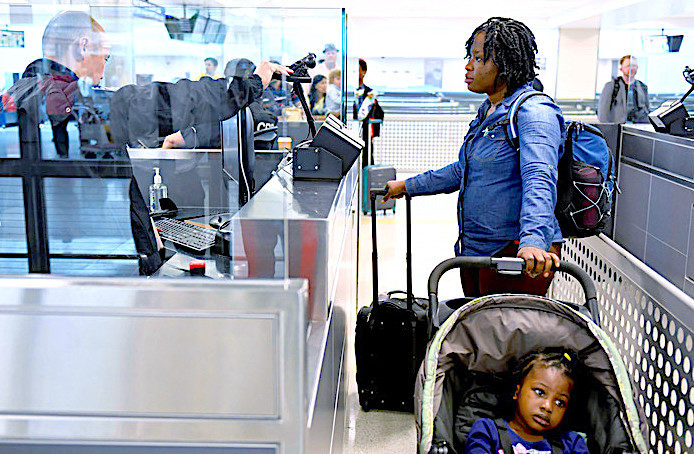
Reports this week that U.S. Customs and Border Protection wanted to expand airport facial screening to U.S. citizens drew immediate outcry from privacy advocates and lawmakers, who accused administration officials of reneging on promises that the scans would remain optional for citizens.
Sen. Edward Markey, D-Mass., said Wednesday that he planned to propose legislation to block the CBP from making the change. On Thursday, however, the CBP said it was withdrawing the proposal. The agency said in a statement:
"There are no current plans to require U.S. citizens to provide photographs upon entry and exit from the United States. CBP intends to have the planned regulatory action regarding U.S. citizens removed from the unified agenda next time it is published."CBP officials said the agency had initially considered including U.S. citizens as part of its biometric entry-exit programs because of concerns that a separate screening process would create logistical challenges that could impede security and result in longer wait times for travelers.
But after consulting with members of Congress and privacy experts, the agency said the scans will remain voluntary for citizens.
Markey, who has long questioned the agency's use of biometric identification technology, commented:
"This is a victory for every single American traveler who flies on a plane, and a reminder that the we must remain vigilant protectors of our right to privacy. Thanks to swift and public pressure, Homeland Security is reversing course and not moving forward with its dystopian facial recognition proposal at U.S. airports."Even so, Markey said he still intends to introduce legislation that would block department officials from requiring such scans.
Jay Stanley, a senior policy analyst with the American Civil Liberties Union, said that despite CBP's decision to withdraw the proposal, Congress needs to take action to stop the program from expanding without proper oversight.
"The Department of Homeland Security's plans to spread face recognition surveillance nationwide remain alarming, especially given the lack of congressional authorization and sufficient safeguards, the government's past security failures, and unanswered questions about the technology's effectiveness, bias, and broader societal implications."For more than a decade, Congress has pushed homeland security officials to develop programs that use biometrics to track people who enter and exit the United States. In 2016, lawmakers authorized up to $1 billion from certain visa fees to fund the program. In March 2017, President Donald Trump gave the program another boost when he signed an executive order to expedite deployment of biometric screening programs.
Facial recognition systems at 11 U.S. airports screen passengers when they arrive in the country. More than 20 airports, including Washington Dulles International in Virginia, which served as an early test site, now use facial recognition to capture travelers' images when they leave the country. Officials say the systems speed the boarding process by eliminating the need for boarding passes and identification.
The use of such systems also has grown beyond just screening arriving and departing. Travelers who fly Delta Air Lines, for example, can opt to have their faces scanned to check their bags. Some airport lounges allow travelers to check in using their fingerprints.
And while citizens can opt out of being photographed, they don't always know that, privacy experts say.
The scans work by comparing new photos taken when a passenger arrives or leaves the country with existing images already on file. CBP officials said the systems allow officers to process travelers more quickly and with more accuracy. However, researchers maintain that accuracy can vary depending on a person's race or sex.
Even if the agency had moved forward with the proposal, it probably would have faced legal roadblocks in implementing it.
A 2017 study by researchers at Georgetown University's Center on Privacy and Technology noted that while legislation authorizes the collection of biometric data from noncitizens, Congress has never explicitly authorized the collection of that information for citizens.



Comment: See also:
Smile America! DHS to expand airport face recognition scans to include US citizens